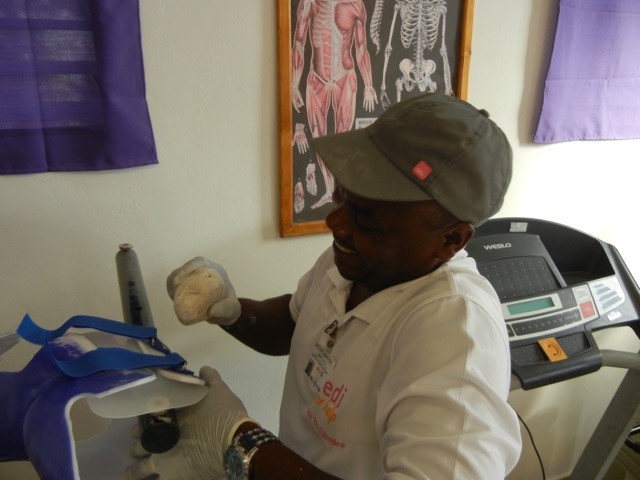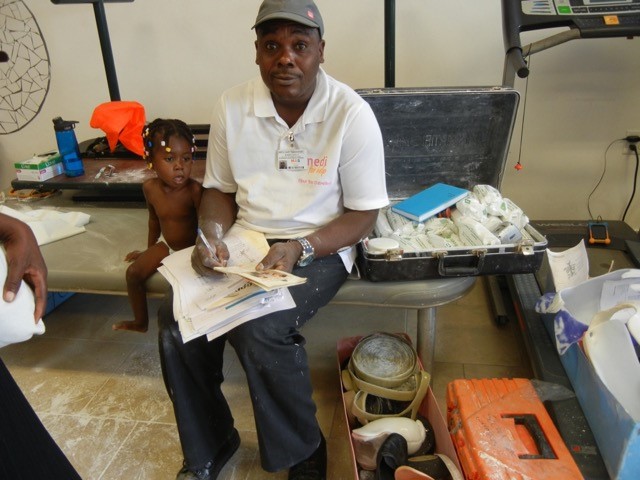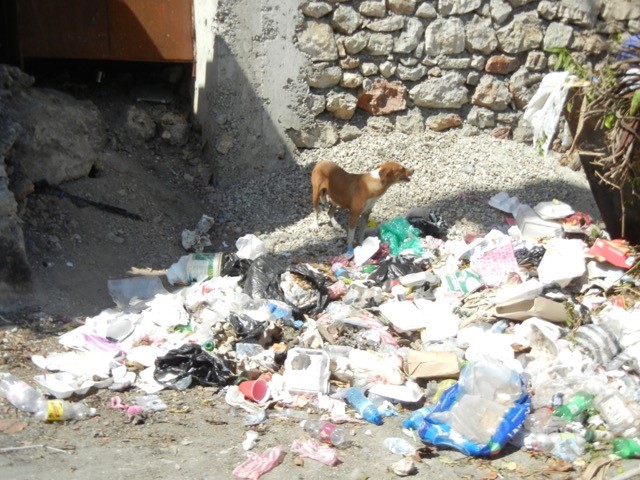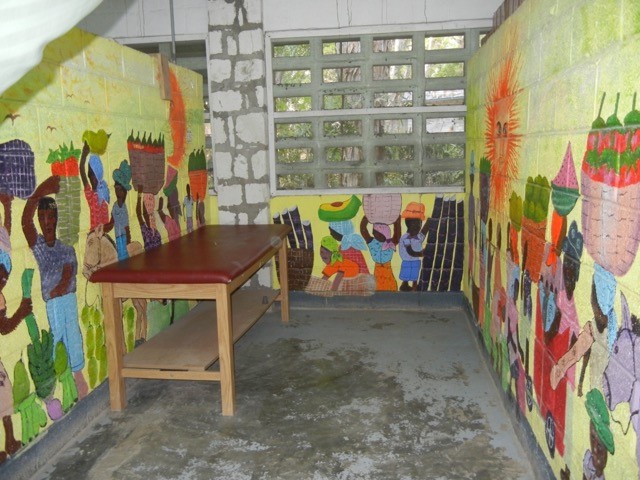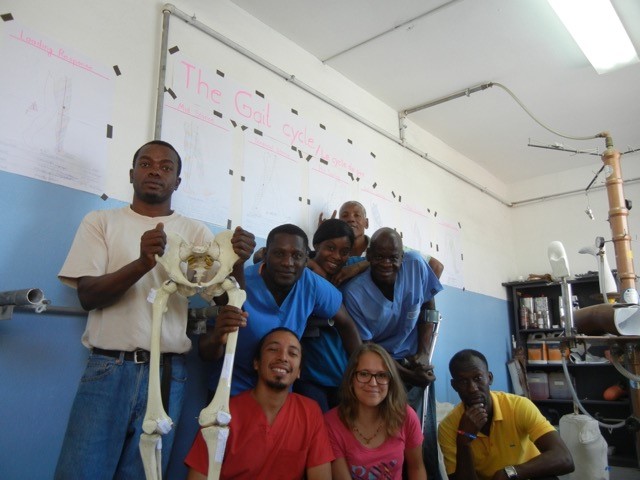
Simone Maly: My experiences with medi for help
It had always been my dream to work on a relief project as a CPO, and it finally came true with the help of medi for help after I’d finished my studies. The positive reactions before my trip heightened my eager anticipation even further. The excitement when I finally started off was almost unbearable. However, after a long flight and spending a night in the US I felt really great: away from the winter and into the summer. As soon as I arrived they fed me delicious Haitian home cooking.
My Haitian colleagues greeted me warmly in the workshops. This heartfelt atmosphere lasted all the time I was there. I got to know the team as a group that worked together closely, and was and still is incredibly grateful for the co-operation with all the volunteers. It’s incredible what medi has set up here!
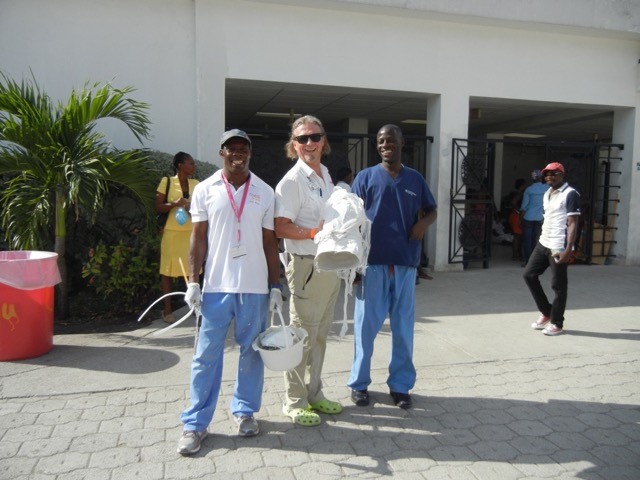
I experienced busy workshop procedures in which everything looked like normal orthopaedic technology at first glance. It wasn’t until some time later when I was making up my own medical devices that I truly realised the meaning of the common saying “better than nothing”. Of course, before my journey I imagined that German standards were highly unlikely to have priority in Haiti. In everyday working life this begins when tidying up your work bench, the cleanliness and storage of materials, and the condition of some of the tools. But it always ends where it matters: with the patient. For me this was a lesson and a fantastic experience at the same time. While plaster casts and initial designs were just what I was used to, I really started to sweat when making up devices, and that wasn’t only due to the high temperatures. A brief period of frustration was followed by motivation: “just do it”! And in the end we delivered the device.
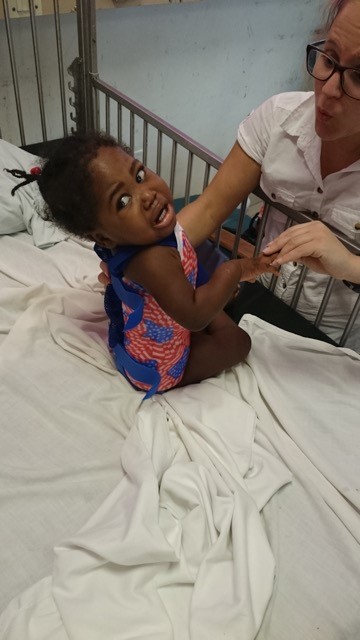
Working in the field
Twice a week I accompanied my colleagues working out in the field in St. Marc and in Mirebalais – an adventure each time. The roads were dusty, and sometimes they were just rough tracks. The passengers, the medical devices and the materials rocked to and fro, and the sun caused the adhesives to evaporate quietly. There are all sorts of appointments on site: fitting sessions for orthoses and prostheses, plaster casts, alterations and deliveries. This is where I got to see 2 young lads aged one and nine years whose spines had been attacked by tuberculosis. A clinical picture that you never see these days in “our world”. It was a special challenge fitting the two boys with a corset.
I spent my last week at the St. Vincent workshop in Port au Prince. They allowed me to hold a seminar for my colleagues there. I decided on the step cycle and its importance for prosthetics and orthotics. However, I soon realised that all the anatomical principles had to be repeated first. I got to know keenly interested colleagues, but I also noticed the contrast to our German discipline.
Overall I got to know a totally different part of the world. I had never encountered poverty before. The rubbish is burned in the streets, and you can’t take either potable water or electricity for granted. In contrast, the people are so open-hearted. This new angle also showed me how limited our mindset often is, and confirmed my view that everybody can do at least something. Particularly our sector, orthopaedic technology, has committed itself exactly to this: a better life, hand in hand for a better quality of life. We have the skills and the means to provide concrete and specific help! I can only warmly recommend every single person out there to take this step. In contrast, I call upon the industry to live up to their slogans on the other side of the world!
Now that I’m back I’m certain that I’d do it again any time, and I wish heartily that I will be able to make this possible. Working with medi for help in Haiti was an exciting journey. Three whole weeks of unending impressions, experiences and thought-provoking impulses. I looked far outside the European box and I’m endlessly grateful for all the things I was so privileged to experience.
